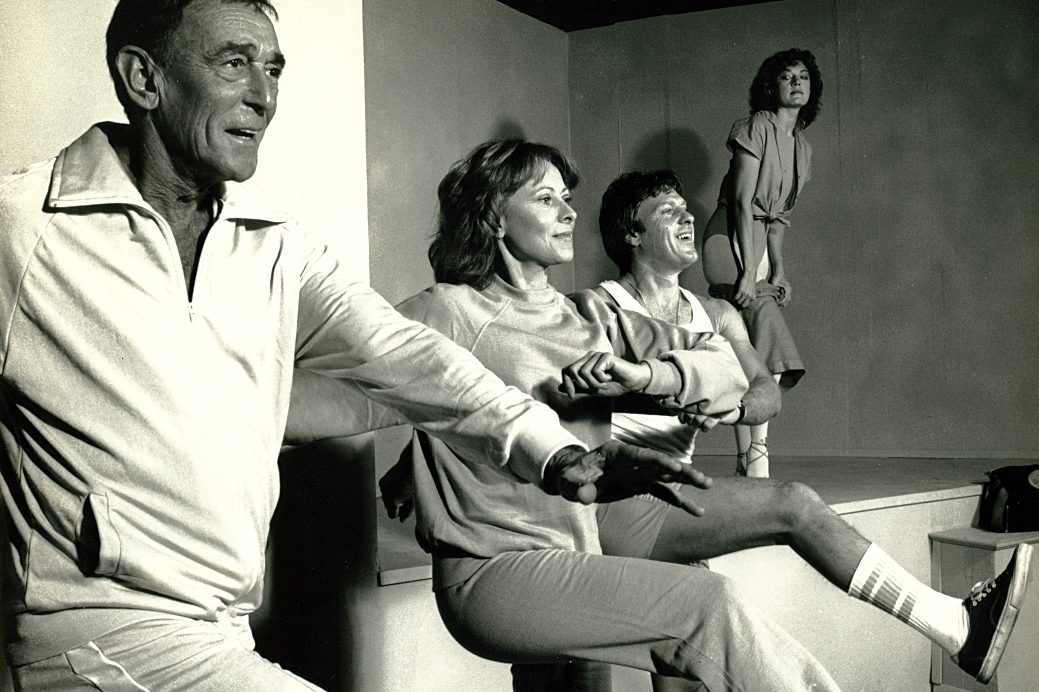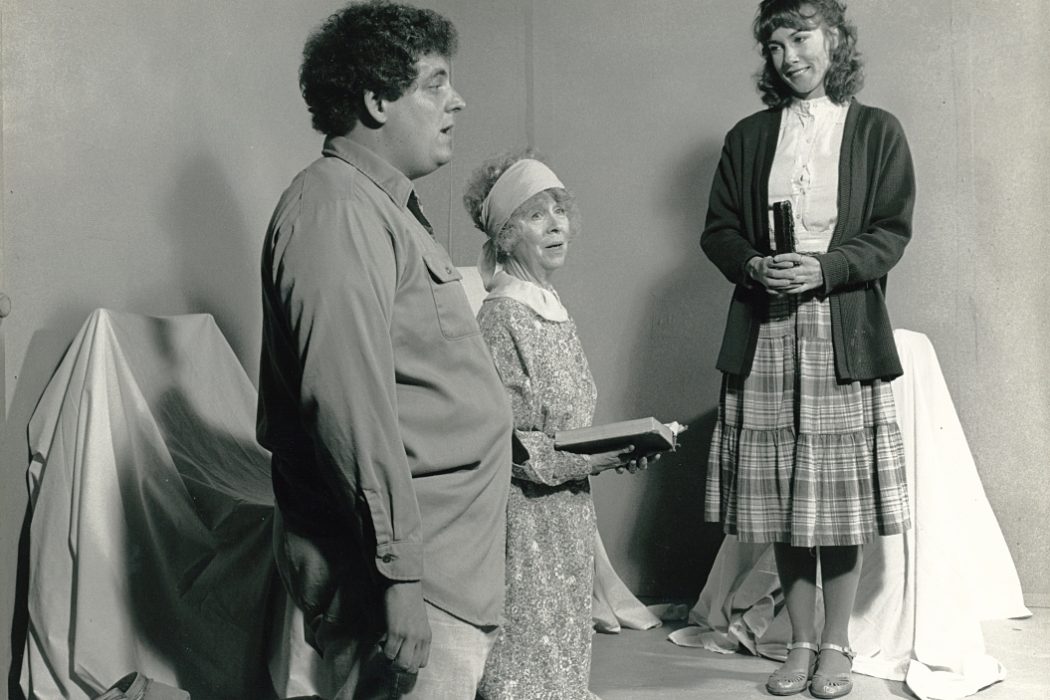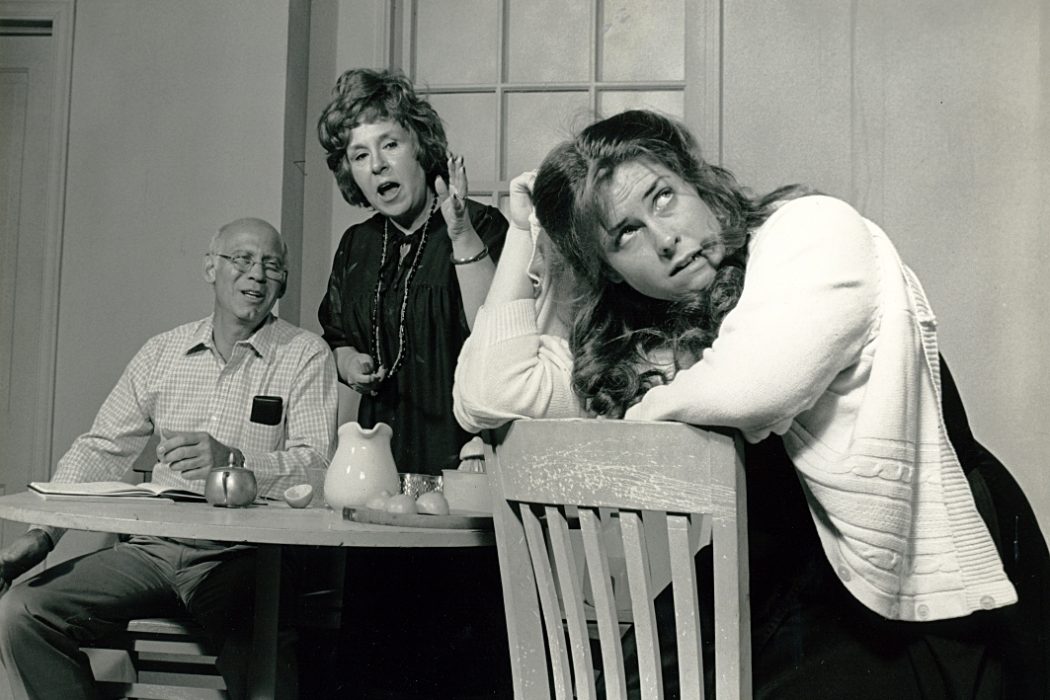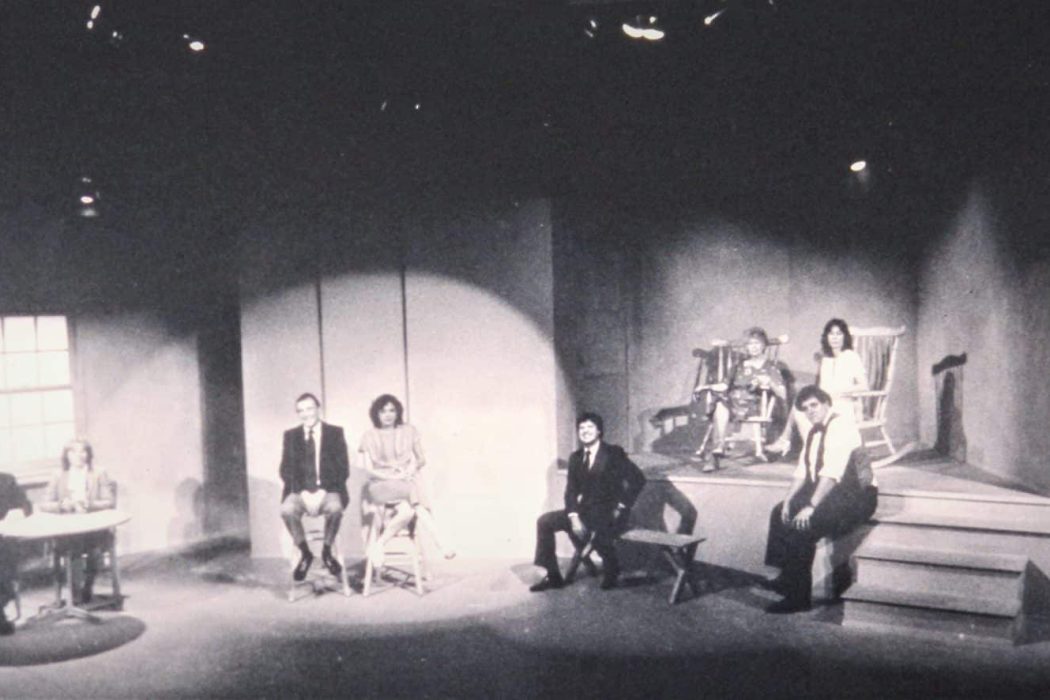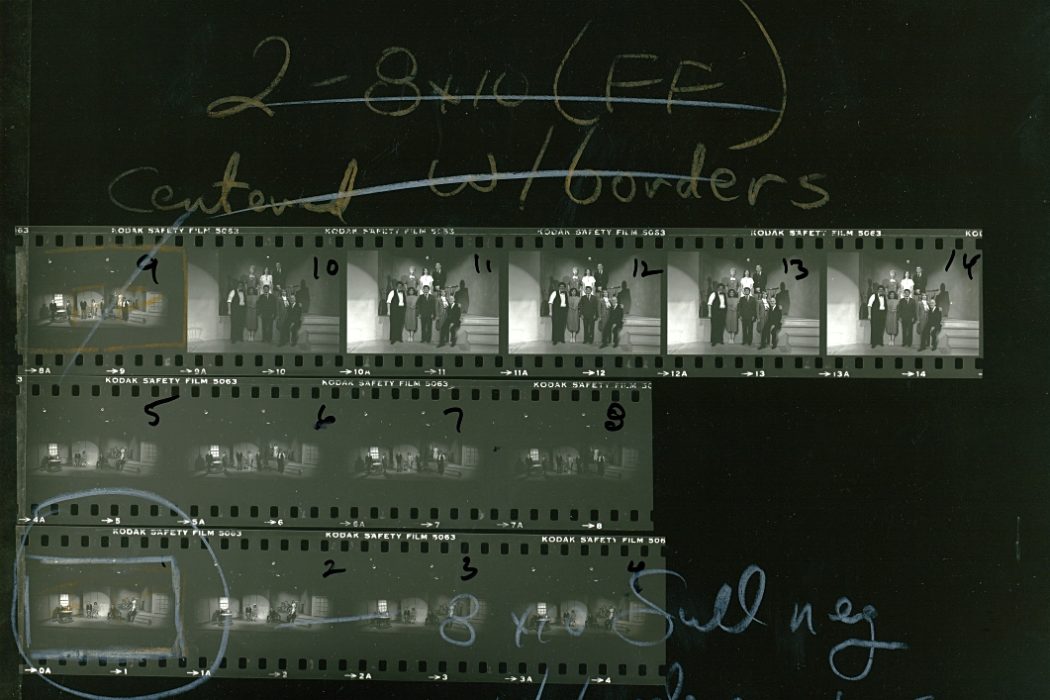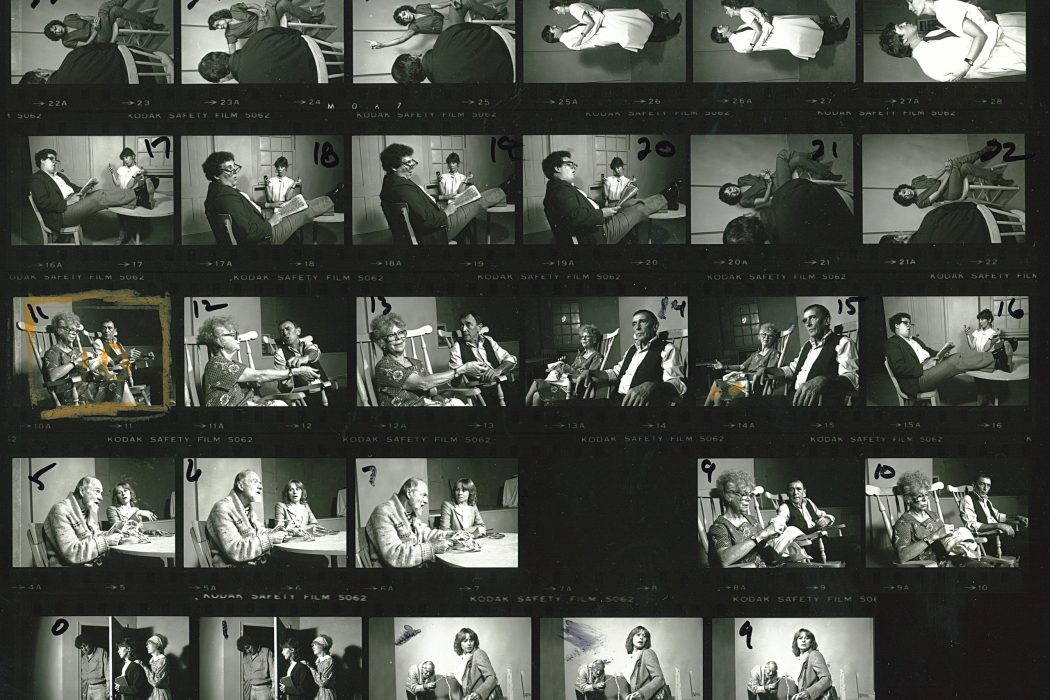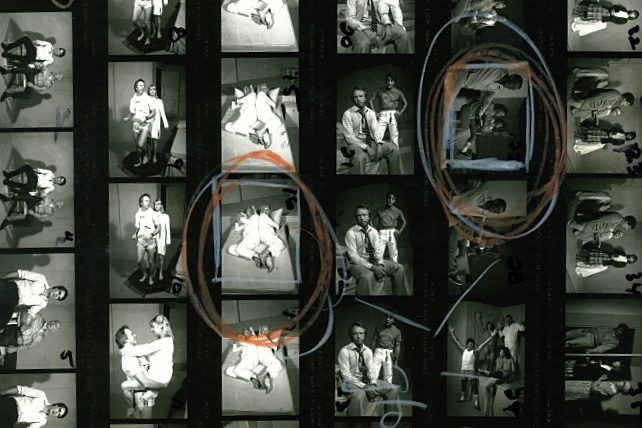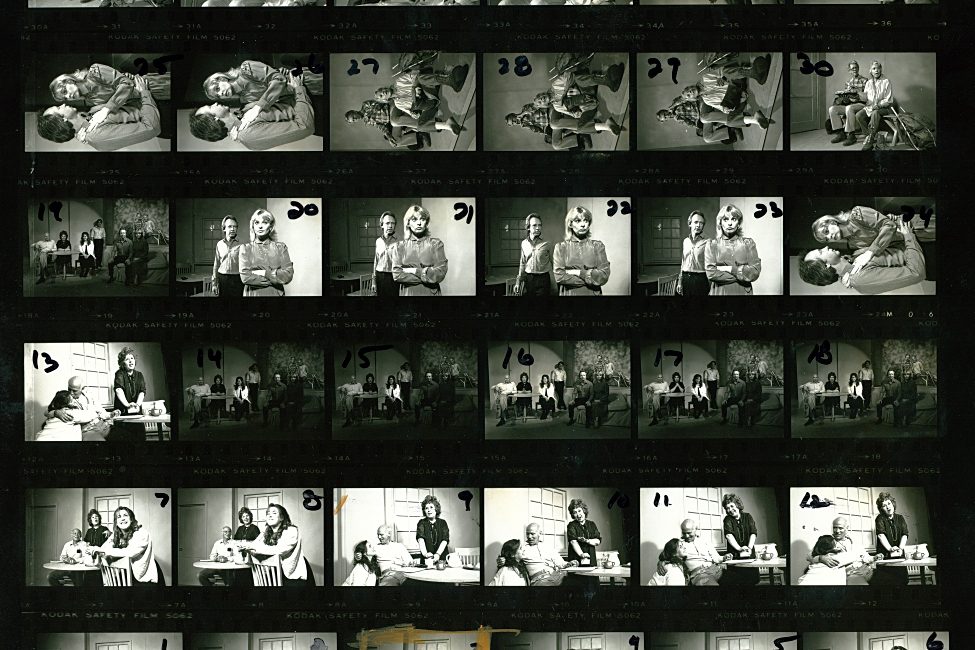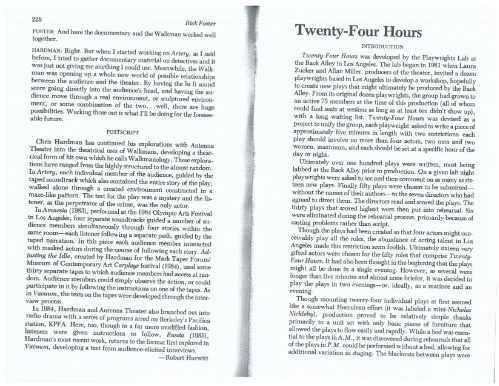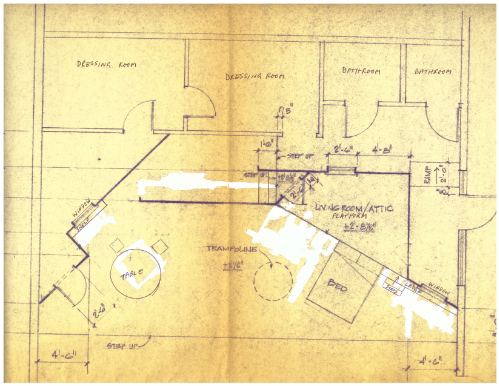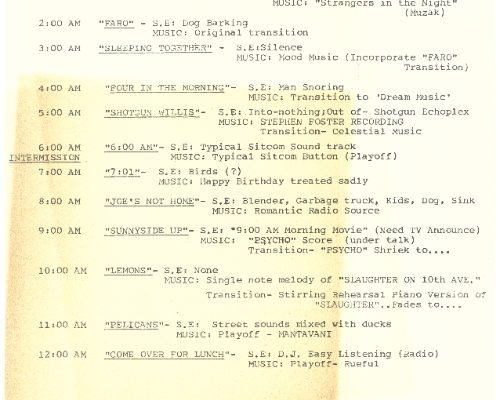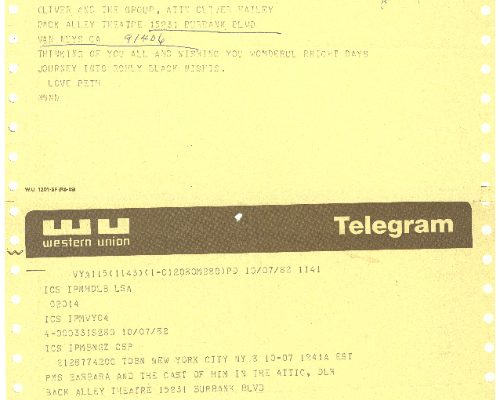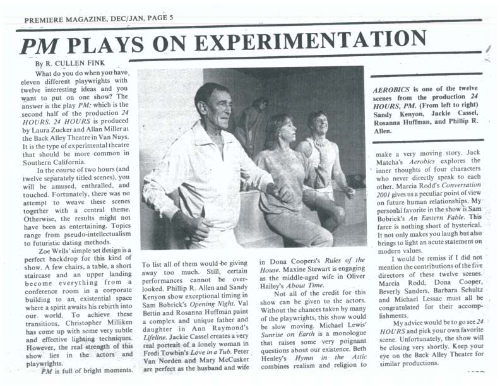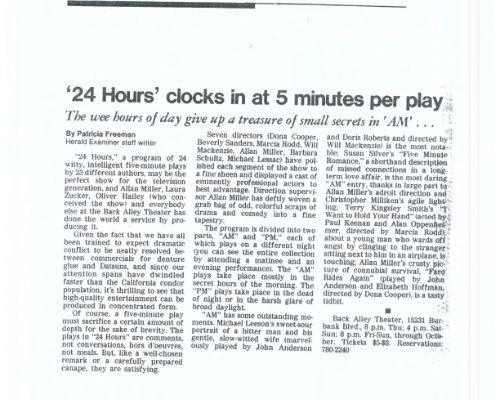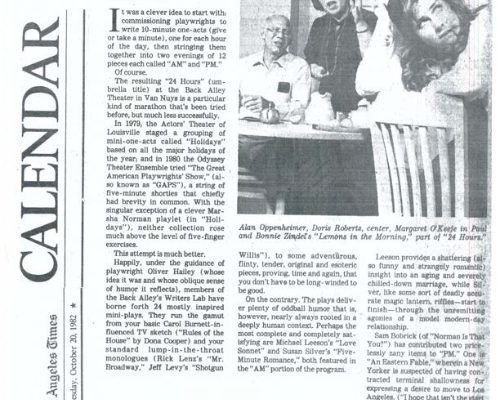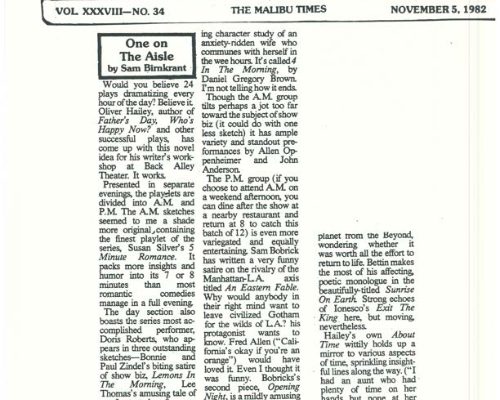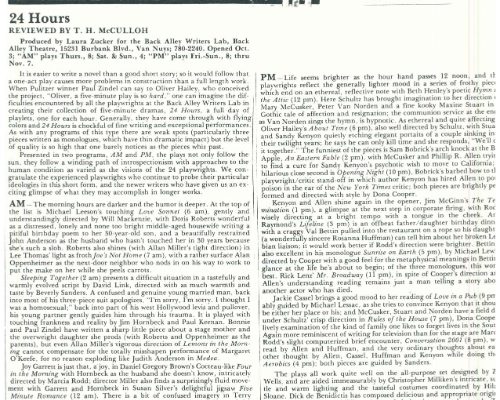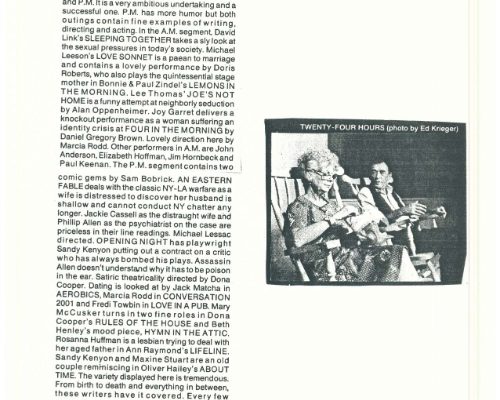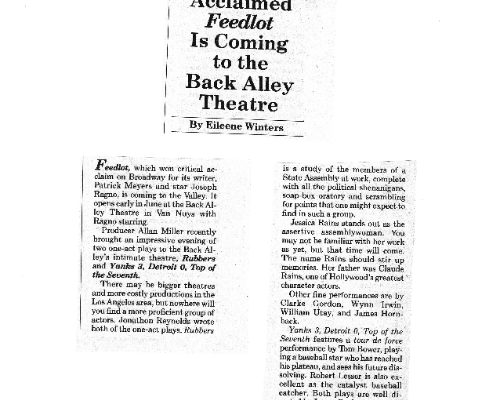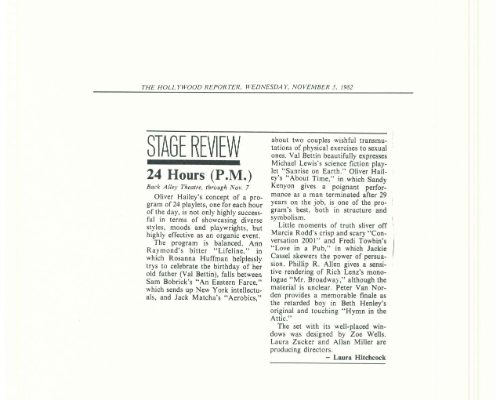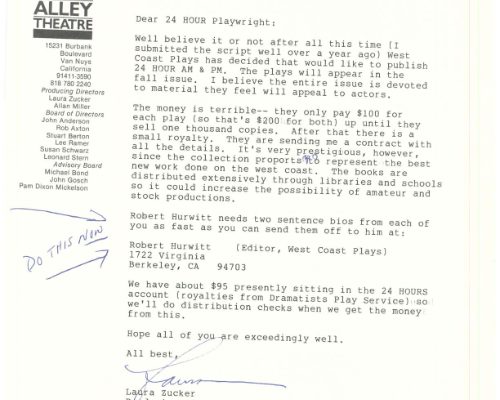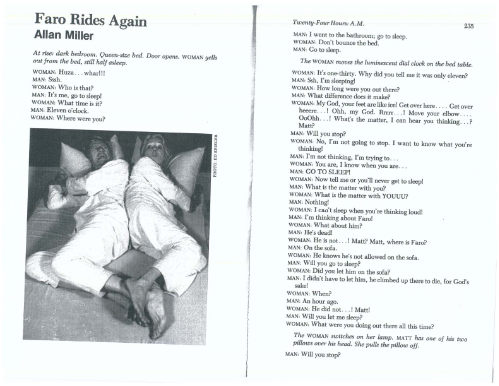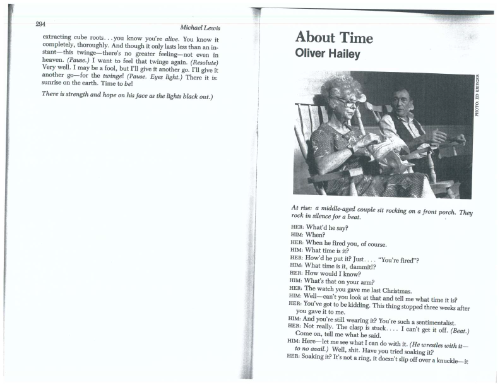Introduction
Conceived by Oliver Hailey, our next production in 1982 at the Back Alley was 24 HOURS, short original plays presented in two parts, AM and PM. You could see each part separately or both together with a dinner break, and many did. Sylvie Drake pointed out that this wasn’t the first attempt at pulling short plays together, and certainly hasn’t been the last, but in her L.A. Times review called the “playlets” “adventurous, flinty, tender, original and esoteric pieces, proving, time and again, that you don’t have to be long-winded to be good.” Foreshadowing the TikTok ethos of ‘if you don’t like this one, another one is coming in a minute,’ audiences loved it.
I was a huge fan of Oliver’s—I’m still convinced that it was using his short play ANIMALS as the contemporary monologue for my audition for the Yale School of Drama that got me in (Oliver was a Yale playwright). When I found out he was our neighbor in Studio City we invited him to use the theatre for a Playwrights Lab.
Oliver’s intro to the project as published in West Coast Plays: “From its original dozen playwrights, the group had grown to an active 75 members at the time of this production (all of whom could find seats at sessions as long as at least ten didn’t show up), with a long waiting list. 24 HOURS was devised as a project to unify the group, each playwright asked to write a piece of approximately five minutes in length with two restrictions: each play should involve no more than four actors, two men and two women, maximum, and each should be set at a specific hour of the day or night.
“Ultimately over one hundred plays were written, most being labbed at the Back Alley prior to production. On a given lab night playwrights were asked to see and then comment on as many as sixteen new plays. Finally fifty plays were chosen to be submitted - without the names of their authors – to the seven directors who had agreed to direct them. The directors read and scored the plays. The thirty plays that scored highest were then put into rehearsal. Six were eliminated during the rehearsal process, primarily because of casting problems rather than script.”
The mini-plays chosen included two by Pulitzer Prize winners, Paul Zindel with Bonnie Zindel, and Beth Henley (her telegram below), as well as Oliver, Allan, Rick Lenz, Sam Bobrick, Jerry Mayer, Christine Rimmer (Christine Reynolds now) and Marcia Rodd.
Sixteen actors in two ensembles were formed for the fifty roles, including John Anderson, Elizabeth Hoffman, Jim Hornbeck, Alan Oppenheimer and Doris Roberts in AM; Phillip Allen, Sandy Kenyon, Van Bettin, Peter Van Norden, Mary McCusker and Maxine Stuart in PM. Allan was the supervising director, with individual pieces also directed by Dona Cooper, Will Mackenzie, Marcia Rodd, Beverly Sanders, and Barbara Schultz.
I had the great honor (and fun!) of fomenting a bidding war between Samuel French and Dramatists Play Service (DPS) for the publishing and licensing rights as the pieces were ideal for scene study and auditions. I’m happy to report that 24 HOURS sold for the largest advance ever paid to that time, for a play that hadn’t been produced in NYC, to DPS. On their advice, and the playwrights’ agreement, we took out an omnibus copyright in the name of the Back Alley.
When a nonprofit disbands, any assets it owns, including copyrights, must go to another nonprofit. After reviewing prior discussions we’d had with some of the playwrights about this, we decided the Dramatists Guild of America, the national, professional membership trade association of theatre writers, would be the best place for the property to reside. The Guild has a unit, DG Copyright Management (DG©M), which oversees copyright and estate issues, and they’ve been awesome about facilitating the transfer of the copyright; 24 HOURS AM AND 24 HOURS PM are both available to purchase or license and they’ve even created a legacy site for the plays.
Under the terms of our agreement, each living playwright (and I’m sad to say there are only 10 in 2023 that we know about) will continue to receive 4% of the royalties generated by 24 HOURS, their original share, for their lifetime. The remaining shares in the property, including the Back Alley’s, will benefit the Dramatists Guild.
Oliver died way too young at 60 with only one week’s notice of liver cancer in 1993. In his obituary, The New York Times said, “On Broadway, Mr. Hailey may not be remembered as much for his three plays that appeared there – ‘First One Asleep, Whistle,’ ‘Father’s Day,’ and ‘I Won’t Dance’ — as for the fact that each closed after a single performance. A reviewer once called Mr. Hailey the ‘most produced, least successful’ playwright in the New York theater, and Mrs. Hailey [Elizabeth Hailey] vigorously agreed with the assessment. She said that her husband often joked to friends about the distinction of having each of his Broadway productions open and close the same day. ‘They ran all evening,’ he used to say, ‘They ran all evening,’ she remembered.”
Hoping that 24 HOURS will continue to be part of Oliver’s true legacy, the ever-generous support he provided to other playwrights.
–Laura Zucker


